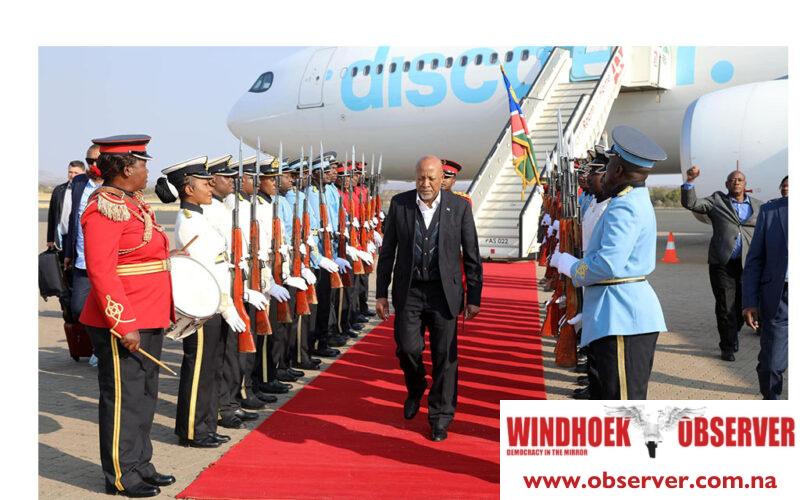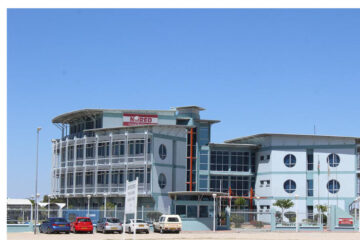Niël Terblanché
President Nangolo Mbumba returned home on Saturday after his working visit to the United States, where he participated in the 79th session of the United Nations General Assembly (UNGA 79) in New York.
The session, held from 19 to 26 September, was themed “Leaving no one behind: Acting together for the advancement of peace, sustainable development, and human dignity for the present and future generations.”
Mbumba also co-facilitated the Summit of the Future with German Chancellor Olaf Scholz, according to a statement from the Namibian Presidency.
The summit was convened under the theme “Summit of the Future: Multilateral Solutions for a Better Tomorrow,” and focused on addressing global challenges through cooperation.
One of the key outcomes was the adoption of the Pact for the Future, a global agreement aiming to tackle urgent issues such as climate change, poverty, and inequality.
In his role as co-facilitator of the summit, Mbumba made several key interventions.
He stressed that while agreements and pacts are important, the success of such initiatives depends on their implementation.
“The true measure of our success will be in the effective implementation of the Pact for the Future, the Global Digital Compact, and the Declaration on Future Generations,” Mbumba said during the closing session of the Summit’s Action Days.
Bilateral discussions with world leaders formed a critical part of the president’s agenda.
Ahead of the Summit of the Future, Mbumba held a bilateral meeting with UN Secretary-General António Guterres on 19 September 2024, where Guterres praised Namibia for its efforts in fostering global unity.
During the meeting, Mbumba emphasised the importance of international financial reforms to benefit developing nations while also discussing Namibia’s peacebuilding role in the Southern African Development Community (SADC) region.
On 22 September, Mbumba met with Germany’s Chancellor, Olaf Scholz, to discuss Namibia’s bilateral relations with Germany as well as their shared responsibilities as co-facilitators of the Summit.
The discussions also focused on opportunities for collaboration in sectors such as tourism and services, crucial areas for both countries.
Mbumba explored technological opportunities for Namibia during a meeting with SpaceX and Tesla founder, Elon Musk.
While the Starlink application is still in process, Mbumba urged Musk to assist Namibia in bridging its digital gap, emphasising the country’s commitment to improving technology infrastructure.
At the Private Sector Forum of the Summit, Mbumba underlined Namibia’s leadership in the intergovernmental process and stressed the importance of political will in addressing global fragmentation.
“We cannot confront these challenges if we don’t restore trust and frame the path ahead toward a more inclusive, sustainable, and prosperous world for all,” he told global business leaders at the forum.
As part of his engagements, Mbumba also met with African leaders such as Mauritius’ President Prithvirajsingh Roopun and Angola’s President João Lourenço. Discussions with Roopun focused on strengthening bilateral cooperation, particularly in the tourism and services sectors, while talks with Lourenço concentrated on energy collaboration.
On the margins of UNGA, Mbumba attended the Africa-America Institute’s 40th Annual Awards Gala, which honoured the late President Hage Geingob.
While reflecting on the legacy of Geingob, Mbumba expressed gratitude for the recognition of Namibia’s exceptional leadership.
In his national address to the General Assembly on September 25 September, Mbumba reiterated Namibia’s support for multilateralism, while also calling for reforms in global institutions like the UN Security Council.
He stressed that the current multilateral frameworks do not adequately represent the needs and aspirations of African nations.
Mbumba’s visit to New York has strengthened Namibia’s position on the global stage, reaffirming the country’s commitment to sustainable development, international cooperation, and financial reform.




